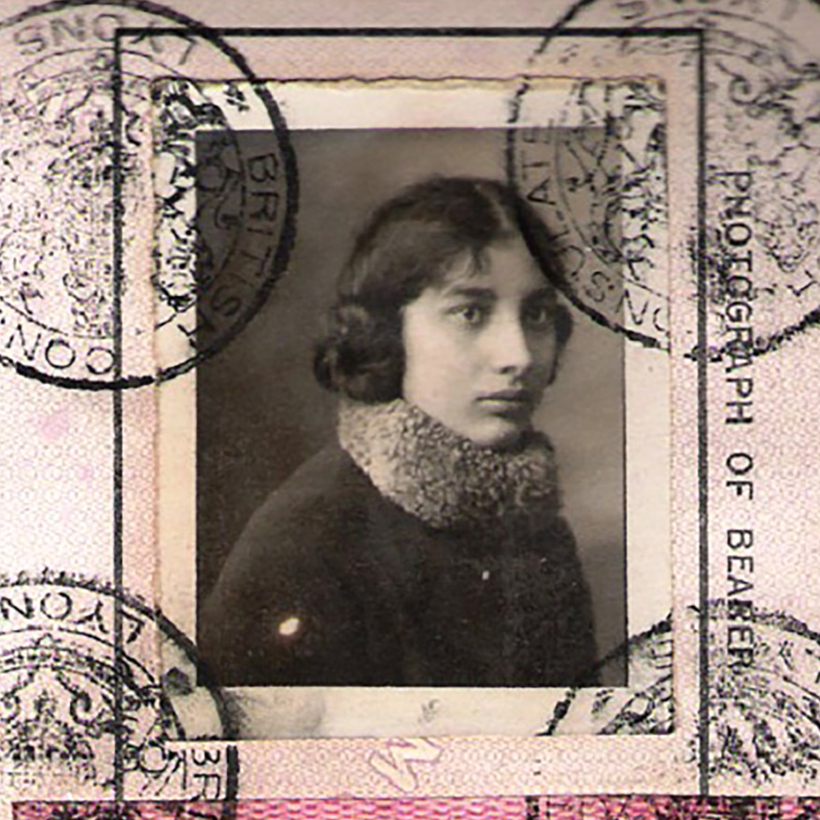The Nazi term for the fate of enemies who were to be destroyed without a trace translates to “as Night and Fog.” One such victim was “Nora Baker,” a British Special Operations Executive wireless operator who would chisel her name and her family’s home address in London onto a tin mug while inside the Pforzheim prison, where she was placed in solitary confinement prior to her execution, in Dachau.
True, her mother was Ora Baker, originally from Albuquerque, New Mexico, but Nora’s real name was Noor Inayat Khan, and on her father’s side she hailed from a great Muslim Indian family. Khan is a reminder that not everyone who fought the Nazis looked like Clint Eastwood or even Nigel Farage. (Not that either gent did, mind you.)

The true story of how a timid, pacifist Indian woman ended up on the Nazis’ most-wanted list in occupied Paris is traced in a short film, Liberté, written by the British-Pakistani television presenter and journalist Sam Naz, which hits theaters this weekend. Naz, who also plays Noor in the film, said, “Here was a key figure in the war effort who looked like me, yet I had known nothing about her growing up. I felt I had a duty to put Noor’s courage front and center.”
The bleak truth about the S.O.E.’s efforts in Nazi-occupied Europe is that, despite the raw courage of the heroes parachuted into the dark, they were pretty bloody hopeless. Churchill’s challenge, to “set Europe ablaze,” was not matched by resources from Britain’s top brass. The Nazi counter-espionage operation was sophisticated, especially so against the S.O.E.’s wireless operators. (Time and again, captured wireless operators did their best to convey they had been caught, but S.O.E. bosses blithely ignored the evidence.)

Khan was a harpist, which could explain her talent for tapping out Morse code. But the old sweats at the S.O.E.’s Beaulieu station were alarmed by her honesty and pacifism. Khan’s mock Gestapo interrogation was a fail: “She seemed terrified … so overwhelmed she nearly lost her voice,” according to one report. “She was trembling and quite blanched.” Another report commented, “She has an unstable and temperamental personality and it is very doubtful whether she is really suited to work in the field,” while a third suggested she was physically unsuited to the role.
But 29-year-old Khan, passionate about the cause, went to France anyway. She lasted only a few months before she was betrayed to the Gestapo.

Naz’s short film—which she plans to extend to a TV drama series—focuses on Khan’s time resisting the real Gestapo interrogation. One male S.O.E. agent, John Starr, who was held at the same time, compromised with the Germans, was taken out to restaurants, and, after the war, ended up running a nightclub in the city of Stoke-on-Trent. Meanwhile, Nazi records show that Khan gave nothing away and tried to escape, twice, earning her a trip to Pforzheim and, later, Dachau.
After her death, Khan’s brother, a fellow musician, wrote a haunting melody in her memory. That—and Naz’s performance as Khan—makes Liberté a powerful tribute to a ferociously brave woman of color.
Liberté is in theaters now
John Sweeney is a British journalist and author. He is the host of the podcast Hunting Ghislaine
